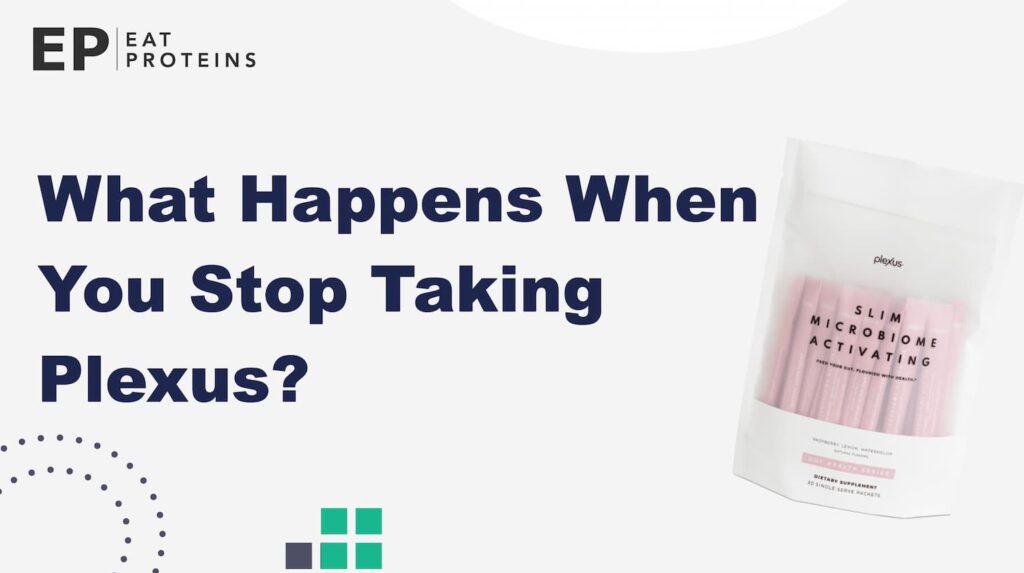
When you stop taking Plexus, which contains Polydextrose, you might lose its potential benefits like regulated post-meal triglyceride levels and reduced hunger, as suggested by a 2011 study by Kirsti K. Tiihonen from Danisco Health & Nutrition. Plexus Slim “Pink Drink”, a key product from the company, aims to aid weight loss by curbing hunger and cravings. Its main ingredient is Polydextrose, a type of soluble fiber that tells your brain you’re full, helping prevent overeating. It also contains chromium, which helps your body use glucose better, makes your insulin receptor more sensitive and improves how your body absorbs glucose.
I’ve been using Plexus Slim Hunger Control for over a month, and it did curb my appetite, but the product’s cost and bothersome side effects, including itchy bumps on my arms, stomach, hips, and legs, and a persistently itchy scalp, made it challenging to use regularly. Unfortunately, I didn’t see any noticeable weight loss, but my energy levels dipped. I did some online research and consulted with our nutritionist to find cheaper alternatives after stopping Plexus, which I’m going to share with you right now.
What Happens When You Stop Taking Plexus Slim?
When you stop taking Plexus Slim, you may lose the benefits related to energy metabolism and appetite control attributed to its two key ingredients: 6,250 mg of polydextrose and 200 mcg of chromium polynicotinate. According to a study led by Ellen Konings, Principal Clinical Research Specialist at Medtronic, titled “Effect of polydextrose and soluble maize fiber on energy metabolism, metabolic profile, and appetite control in overweight individuals,” replacing carbohydrates with polydextrose resulted in a reduced peak glucose response after meals and lower post-meal insulin levels, indicating improved blood sugar control. Consequently, discontinuing supplements like Plexus that contain polydextrose may diminish these notable appetite-suppressing effects.
Since I stopped using Plexus, I’ve been feeling more tired and unmotivated, and I’ve even started taking naps during the day. Plexus seemed to help with my energy and mindset, although my weight hasn’t changed. I haven’t reordered the Triplex due to the cost.
What Happens To Your Weight When You Stop Taking Plexus Slim?
When you stop taking Plexus Slim it doesn’t necessarily mean you’ll regain lost weight. Maintaining a balanced diet is key. A 2014 study from Maastricht University Medical Centre+ found that replacing carbs with soluble fibers like polydextrose helps control blood sugar and boosts fat burning. But these effects are mainly due to reduced calorie intake and not just the fibers themselves. So, with a balanced diet, you can maintain your weight loss even after discontinuing taking Plexus which contains polydextrose.
After I stopped Plexus, my weight remained around 185-187 pounds, but I wasn’t consistent with weighing myself due to travel with my wife. On the positive side, my itchy scalp and arm bumps disappeared. However, I did notice an increase in cravings and appetite, especially around midday.
What Happens To Your Appetite When You Stop Taking Plexus Slim?
When you stop taking Plexus supplements with polydextrose, you can experience an increase in appetite, potentially leading to consuming more calories during your next meal. A 2015 study by Alvin Ibarra found that including polydextrose in a mid-morning snack can lead to a 12.5% reduction in calorie intake during the next meal, typically lunch. For instance, if someone would usually consume around 1048 calories (equivalent to 4388 kilojoules) without polydextrose, they might eat only about 920 calories (equivalent to 3839 kilojoules) with it. This effect applies to both men and women, with men reducing calorie intake by about 13.7% and women by approximately 10.1%.

Apart from a slight change in appetite, I didn’t notice anything unusual, but my wife experienced some digestion changes and felt a bit bloated after stopping Plexus. However, this could be attributed to food rather than Plexus itself.
What Happens To Your Bowel Movements When You Stop Taking Plexus?
When you stop taking Plexus, changes in your bowel movements may occur, as shown in a 2015 study. This research found that people who had been consuming polydextrose, an ingredient in Plexus, had improved bowel function. Stool frequency increased from 3.0 times per week to 7.5 times per week, indicating better bowel regularity. Furthermore, participants in the polydextrose group reported no laxation problems, such as abdominal distention, cramps, and diarrhea. So, if you discontinue Plexus, you may no longer experience these positive effects on your bowel habits.
What are the potential side effects of stopping Plexus Slim?
Stopping Plexus Slim Hunger Control might lead to some side effects, as it contains ingredients like polydextrose and chromium that affect appetite and blood sugar levels. Here’s a look at seven potential Plexus Slim side effects you might experience.
- Increased food cravings due to the absence of polydextrose’s satiety signaling.
- Potential blood sugar spikes from reduced chromium intake.
- Changes in body composition, possibly reversing improvements.
- Altered gut microbiota, affecting digestion and nutrient absorption.
- Decreased fat oxidation, impacting weight management.
- Possible return of pre-supplement hunger levels.
- Adjustments in energy levels and metabolism.
What are the potential benefits of stopping Plexus Slim?
Here are the potential benefits you might experience after stopping Plexus Slim Hunger Control:
- Your body gets better at telling you when you’re hungry or full, without needing supplements.
- Your blood sugar levels stabilize on their own, without extra supplements.
- Your body’s shape and weight might change naturally as your metabolism gets used to not having supplements.
- Without green coffee bean extract present in Plexus pink drink, your body will process sugar and food more normally.
- You’ll get a clearer sense of when you’re actually hungry or full, just by listening to your body.
- You can try different ways of eating and living to help manage your weight.
- You become more aware of how certain supplements really affect you, both health-wise and how you feel.
What do Plexus reviews say about the positive effects of quitting Plexus Slim?
In Plexus reviews, some former ambassadors have shared positive experiences after quitting Plexus Slim. They mentioned feeling relieved and free from the pressure of being part of the company. However, most of the reviews of Plexus products point out that they didn’t deliver the promised weight loss and wellness benefits. Many users found the products to be expensive and ineffective, with some even noticing a change in the product’s taste and formulation over time. Overall, the consensus among these reviews is that when you stop Plexus, your weight loss may plateau, you may experience increased cravings, and your energy levels can drop.
Are there any Plexus alternatives that have better reviews for weight loss?
Yes, Thrive, Nu Biome, Probio5, Optavia, and Yoli are among the Plexus product alternatives that I’ve tried and seen more favorable reviews in weight loss. However, these are just supplements, and your primary focus should be on your diet.
How long does it take for Plexus Slim to leave your system after you stop taking it?
When you stop taking Plexus Slim, the effects of the product may gradually wear off over time. The duration can vary depending on individual factors, such as metabolism and overall health.
